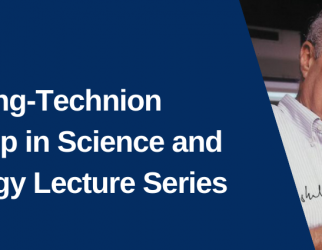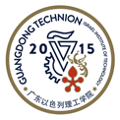
Cross-Correlations Between the Thermal Sunyaev-Zel’dovich Effect and Large-Scale Structure Tracers: Towards Improved Cosmological Constraints
Title
Cross-Correlations Between the Thermal Sunyaev-Zel’dovich Effect and Large-Scale Structure Tracers: Towards Improved Cosmological Constraints
Speaker
Ayodeji Ibitoye (Physics, GTIIT)
Time and Location
Thursday, January 16, 17:00-18:00, E209, Education Building, North Campus
Abstract
In the era of precision cosmology, observational data are increasingly utilized to place constraints on cosmological models. One versatile method for achieving this is the cross-correlation of cosmic tracers.
The thermal Sunyaev-Zeldovich (tSZ) effect is a secondary anisotropy of the cosmic microwave background (CMB) radiation, resulting from the inverse Compton scattering of CMB photons by warm-hot electrons. The amplitude of the tSZ effect is characterized by the Compton parameter (y), which is proportional to the electron pressure integrated along the line of sight (LoS). Since the tSZ effect is independent of observing frequency and not explicitly dependent on redshift, it serves as a valuable tracer of large-scale structure (LSS). This implies that all warm-hot gas encountered by CMB photons from the last-scattering surface to the observer contributes to the spectral distortion.
In this context, cross correlating the observed tSZ effect with other LSS tracers provides a powerful tool for extracting information about the redshift of the hot gas responsible for the tSZ signal. This, in turn, enables a more accurate characterization of the distribution of diffuse gas components in relation to the cosmic web, ultimately offering insights into the growth of structures and other fundamental cosmological parameters.
In this talk, I will discuss our previous successful and ongoing efforts to combine the tSZ probe with other cosmological observables to explore constraints on the hydrostatic mass bias parameter, galaxy properties, the warm-hot intergalactic medium (WHIM), the error on the density parameter for neutral hydrogen, and primordial non-Gaussianity. Additionally, I will highlight our recent work utilizing a joint analysis of weak gravitational lensing and galaxy clustering in the Chinese Space Station Telescope (CSST) photometric survey to forecast improvements in cosmological constraints.
Bio
Ayodeji Ibitoye recently joined the Cosmology and Astrophysics group as a Research Fellow within the Physics Program at GTIIT. He is the first early-career researcher from Africa to win the ANSO Fellowship twice (in the early-career category) at the National Astronomical Observatories of the Chinese Academy of Sciences in Beijing. Ayodeji obtained his PhD in Cosmology from the University of KwaZulu-Natal in South Africa in May 2021. He also holds an MSc with Distinction in Theoretical Physics from the University of Ibadan in Nigeria, as well as a BSc (First Class) in Physics from Obafemi Awolowo University, also in Nigeria.
His research interests focus on the cosmological analysis of various large-scale structure observables and 21 cm cosmology, aiming to enhance our understanding of the formation and evolution of cosmic structures in the universe.
Speaker
-
Ayodeji Ibitoye
Local Time
- Timezone: America/New_York
- Date: 16 Jan 2025
- Time: 4:00 am - 5:00 am



